The Digital Twin and the Internet of Things
| July 1st, 2021 10:30am – 12:30pm US Eastern Time | |
|
10:30am -11:00am |
Introduction and Objectives: The Digital Twin and IoT
Roberto Minerva (roberto.minerva@telecom-sudparis.eu) Noel Crespi (noel.crespi@telecom-sudparis.eu) Adam Drobot (adam.drobot@gmail.com)noel |
|
11:00am – 12:30pm |
Panel Discussion: Challenges and Opportunities for the Digital Twin
Moderator: Roberto Saracco (roberto.saracco@gmail.com) |
| Panelists and Speaker (On-demand pre-recordings):
Flavio Bonomi, Lynx Software, San Jose CA Ines Giovannini, Siemens, Portland OR Dan Isaacs, Digital Twin Consortium, Santa Clara CA Victor Larios, Institute for Smart Cities, Guadalajara, Mexico Ernoe Kovacs, NEC Labs, Heidelberg, Germany Olivia Menaguale, Art Historian, Rome, Italy Sebastien Massart, Dassault Systems, Paris, France Vartan Piroumian, Consultant, Los Angeles CA Larry Schmitt, The Inovo Group, Ann Arbor, MI Jeffrey Voas, NIST, Gaithersburg MD |
|
Description
Digital Twins (DTs) represent a methodology that is an important aspect of the Internet of Things landscape and is likely to impact a wide range of IoT applications and use cases. There are at least four major high level categories where DTs are likely to have broad adoption, including: manufacturing, products, services, and processes. The foremost aspects of DTs is the use of a digital representation of physical objects/artifacts and of physical/procedural activities. Just as important is the development of digital models that capture the dynamics of the object/artifacts under varying conditions. That in turn implies the instrumentation of the actual objects/artifacts with sensors to create a feedback loop that improves the fidelity of the DTs to predict or express their dynamic state – that is to capture the past, understand the present, and be able to predict the future of the object/artifact. In dealing with complex or compound objects the Digital Twin may in turn be composed of a federation or orchestration of many DTs that must interact with each other, and accurately represent the components or sub-systems of the object.
The value and importance of DTs is to help make decisions, whether autonomously using the DTs to control activities/procedures of physical objects, or to provide the information and analysis that allows end-users and operators to make better decisions, or to improve their experience. The vision within the DT community is that DTs will be able to operate anywhere and have access to a powerful ubiquitous and distributed infrastructure at any time, thus lowering threshold for their common use and deployment. That journey has already started but is far from complete and there are considerable opportunities within the research community to contribute to the underlying science and technology.
The Workshop will be exploring Digital Twins in the context of the role that they can play within the Internet of Things. The emphasis is on solving problems in an organized way and contributing to innovation, new business and organizational models, manufacturing and process efficiency, elimination of risks, better product design, and services that greatly improve the customer experience. The workshop will consist of three sessions that address:
- Basic aspects of Digital Twins: why they are important and where are they likely to create value, where they fit within the IoT ecosystem, and what implications do they have for organizational design, new business models, and the role of standards and open source.
- The technological underpinnings of Digital Twins: architectures for Digital Twins, the basic support infrastructure including connectivity, computing, storage, the data sciences, modeling methods and techniques, representation of DTs, the use of AI/ML, Virtual and Augmented Reality, and Additive Manufacturing among others.
- Use cases and examples of DT: exposing the range of applications and use cases for the Digital Twin concentrating on actual deployments. This includes the four areas cited above and for specific verticals such as industrial manufacturing, personal assistants, healthcare, construction, aerospace, cultural heritage, and smart cities.
The workshop will conclude with an online panel discussion about the current state and future of Digital Twins.
Chairs
Noel Crespi, Professor, Head of Data Intelligence and Communication Engineering Lab, Institut Mines-Telecom, Paris, France
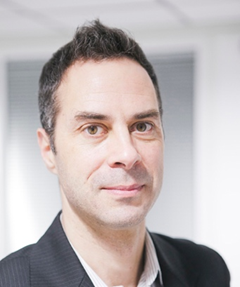 Noel Crespi received the master’s degree from the University of Orsay (Paris 11) and the University of Kent, U.K., the Diplome d’ingenieur degree from Telecom ParisTech, and the Ph.D. and Habilitation degrees from Paris VI University (Paris-Sorbonne). Since 1993, he has been with CLIP, Bouygues Telecom, and then at Orange Labs, in 1995. He took leading roles in the creation of new services with the successful conception and launch of Orange prepaid service, and in standardization (from rapporteur ship of IN standard to coordination of all mobile standards activities for Orange). In 1999, he joined Nortel Networks as a Telephony Program Manager, architecting core network products for EMEA region. In 2002, he joined the Institut Mines-Telecom, where he is currently a Professor and the Program Director leading the Service Architecture Laboratory. He coordinates the standardization activities for Institut Mines-Telecom at ITU-T, ETSI, and 3GPP. He is also an Adjunct Professor with KAIST, an Affiliate Professor with Concordia University, and a Guest Researcher with the University of Goettingen. He is the Scientific Director of the French-Korean Laboratory ILLUMINE. His current research interests include service architectures, softwarization, social networks, the Internet of Things/services, and Digital Twins.
Noel Crespi received the master’s degree from the University of Orsay (Paris 11) and the University of Kent, U.K., the Diplome d’ingenieur degree from Telecom ParisTech, and the Ph.D. and Habilitation degrees from Paris VI University (Paris-Sorbonne). Since 1993, he has been with CLIP, Bouygues Telecom, and then at Orange Labs, in 1995. He took leading roles in the creation of new services with the successful conception and launch of Orange prepaid service, and in standardization (from rapporteur ship of IN standard to coordination of all mobile standards activities for Orange). In 1999, he joined Nortel Networks as a Telephony Program Manager, architecting core network products for EMEA region. In 2002, he joined the Institut Mines-Telecom, where he is currently a Professor and the Program Director leading the Service Architecture Laboratory. He coordinates the standardization activities for Institut Mines-Telecom at ITU-T, ETSI, and 3GPP. He is also an Adjunct Professor with KAIST, an Affiliate Professor with Concordia University, and a Guest Researcher with the University of Goettingen. He is the Scientific Director of the French-Korean Laboratory ILLUMINE. His current research interests include service architectures, softwarization, social networks, the Internet of Things/services, and Digital Twins.
Roberto Minerva, Maitre de Conferences, Institut Mines-Telecom, Paris, France
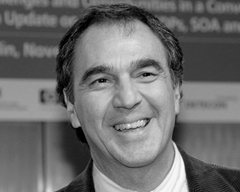 Roberto Minerva holds a Ph.D in Computer Science and Telecommunications from Telecom Sud Paris, France, and a Master Degree in Computer Science from Bari University, Italy. He is Maitre de Conference (Associate Professor) at Institut Mine-Telecom, Telecom Sud Paris, part of the Institut Polytechnique de Paris. His research topics and contributions fall in softwarization and networks (edge computing, virtualization and SDN), Internet of Things and Digital Twin, Artificial Intelligence and Machine Learning. He was the Chairman of the IEEE IoT Initiative, an effort to nurture a technical community and to foster research in IoT. Roberto has been for several years in TIMLab, leading research lines and carry out research on network intelligence and programmability, service architecture, SDN/NFV, 5G, Big Data, architectures for IoT. He is authors of many papers published in international journals, magazine, conferences, and several books.
Roberto Minerva holds a Ph.D in Computer Science and Telecommunications from Telecom Sud Paris, France, and a Master Degree in Computer Science from Bari University, Italy. He is Maitre de Conference (Associate Professor) at Institut Mine-Telecom, Telecom Sud Paris, part of the Institut Polytechnique de Paris. His research topics and contributions fall in softwarization and networks (edge computing, virtualization and SDN), Internet of Things and Digital Twin, Artificial Intelligence and Machine Learning. He was the Chairman of the IEEE IoT Initiative, an effort to nurture a technical community and to foster research in IoT. Roberto has been for several years in TIMLab, leading research lines and carry out research on network intelligence and programmability, service architecture, SDN/NFV, 5G, Big Data, architectures for IoT. He is authors of many papers published in international journals, magazine, conferences, and several books.
Adam Drobot, Chairman, OpenTechWorks Inc., Wayne, PA USA
 Adam Drobot is an experienced technologist and manager. His activities are strategic consulting, start-ups, and industry associations. He is the Chairman of the Board of OpenTechWorks, Inc and serves on the boards of multiple companies and no-profit organizations. In the past he was the Managing Director and CTO of 2M Companies, the President of Applied Technology Solutions and the CTO of Telcordia Technologies (Bellcore). Previous to that, he managed the Advanced Technology Group at Science Applications International (SAIC/Leidos) and was the Senior Vice President for Science and Technology at SAIC. Adam is a member of the US FCC Technological Advisory Council. In the past he was on the Board of the Telecommunications Industry Association where he Chaired the Technology Committee; the US Department of Transportation Intelligent Transportation Systems Program Advisory Committee; and the University of Michigan Transportation Research Institute External Advisory Board. In 2017 and 2018 he chaired the IEEE Internet of Things Initiative Activities Board. He has published over 150 journal and magazine articles and holds 27 patents. In his professional career he was responsible for the development of several major multi-disciplinary scientific modeling codes and specialized in developing tools and techniques for the design, management, and operation of complex scientific facilities, discrete manufacturing systems, and large-scale platforms, for government and industry. His degrees include a BA in Engineering Physics from Cornell University and a PhD. in Plasma Physics from the University of Texas at Austin.
Adam Drobot is an experienced technologist and manager. His activities are strategic consulting, start-ups, and industry associations. He is the Chairman of the Board of OpenTechWorks, Inc and serves on the boards of multiple companies and no-profit organizations. In the past he was the Managing Director and CTO of 2M Companies, the President of Applied Technology Solutions and the CTO of Telcordia Technologies (Bellcore). Previous to that, he managed the Advanced Technology Group at Science Applications International (SAIC/Leidos) and was the Senior Vice President for Science and Technology at SAIC. Adam is a member of the US FCC Technological Advisory Council. In the past he was on the Board of the Telecommunications Industry Association where he Chaired the Technology Committee; the US Department of Transportation Intelligent Transportation Systems Program Advisory Committee; and the University of Michigan Transportation Research Institute External Advisory Board. In 2017 and 2018 he chaired the IEEE Internet of Things Initiative Activities Board. He has published over 150 journal and magazine articles and holds 27 patents. In his professional career he was responsible for the development of several major multi-disciplinary scientific modeling codes and specialized in developing tools and techniques for the design, management, and operation of complex scientific facilities, discrete manufacturing systems, and large-scale platforms, for government and industry. His degrees include a BA in Engineering Physics from Cornell University and a PhD. in Plasma Physics from the University of Texas at Austin.
Moderator
Roberto Saracco, Senior Advisor at Reply, Turin, Italy
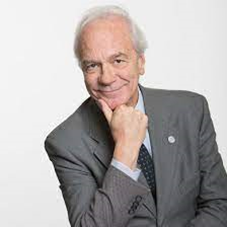 Roberto Saracco fell in love with technology and its implications long time ago. His background is in math and computer science. Until April 2017 he led the EIT Digital Italian Node and then was head of the Industrial Doctoral School of EIT Digital up to September 2018. Previously, up to December 2011 he was the Director of the Telecom Italia Future Centre in Venice, looking at the interplay of technology evolution, economics and society. At the turn of the century, he led a World Bank-Infodev project to stimulate entrepreneurship in Latin America.
Roberto Saracco fell in love with technology and its implications long time ago. His background is in math and computer science. Until April 2017 he led the EIT Digital Italian Node and then was head of the Industrial Doctoral School of EIT Digital up to September 2018. Previously, up to December 2011 he was the Director of the Telecom Italia Future Centre in Venice, looking at the interplay of technology evolution, economics and society. At the turn of the century, he led a World Bank-Infodev project to stimulate entrepreneurship in Latin America.
He is a senior member of IEEE where he leads the Industry Advisory Board within the Future Directions Committee and co-chairs the Digital Reality fostering Digital Transformation Initiative. He teaches a Master course on Technology Forecasting and Market impact at the University of Trento, and he is a COMSOC Distinguished Lecturer. Roberto has published over 200 papers in journals and magazines and 14 books.
He writes a daily blog, https://cmte.ieee.org/futuredirections/category/blog/ , with commentary on innovation in various technology and market areas.
Speakers and Panelists
Flavio Bonomi, Advisor to the Board, Lynx Software, Palo Alto, CA USA
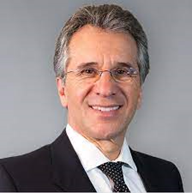 Flavio Bonomi is a serial entrepreneur, technologist and industry visionary, who led the Cisco team that defined a new computing paradigm in 2010 – “Fog Computing”, now also known as Edge Computing. He is now actively driving a number of initiatives enabling the Mission Critical Edge, as a Technology Advisor for a number of companies, including Lynx Software.
Flavio Bonomi is a serial entrepreneur, technologist and industry visionary, who led the Cisco team that defined a new computing paradigm in 2010 – “Fog Computing”, now also known as Edge Computing. He is now actively driving a number of initiatives enabling the Mission Critical Edge, as a Technology Advisor for a number of companies, including Lynx Software.
In 2015, Flavio founded Nebbiolo Technologies, where he was the CEO until 2019, and then the CTO, until 2020. Prior to founding Nebbiolo Technologies, Flavio was a Cisco Fellow, Vice President, and the Head of the Advanced Architecture and Research Organization at Cisco Systems, in San Jose, California. He was co-leading the vision and technology direction for Cisco’s Internet of Things initiative.
Before joining Cisco in 1999, Flavio Bonomi was at AT&T Bell Labs, with architecture and research responsibilities, mostly relating to the evolution of the ATM technology, and then was Principal Architect at two Silicon Valley startups, ZeitNet and StratumOne.
He received an Electrical Engineering degree from Pavia University in Italy, and a master’s and PhD in Electrical Engineering degrees in 1981 and 1985, respectively, from Cornell University in Ithaca, New York.
Ines Giovannini, Siemens, Portland, OR USA
 Ines is a senior communications manager with extensive experience in executive positioning and speechwriting, PR & social media, and internal communications at Siemens Digital Industries Software. Over the course of her career, she has established a proven track record for developing and carrying out complex communications projects on a global scale and within short timeframes.Her current role in brand marketing at Siemens Digital Industries Software has broadened her horizon to execute in an agile, fast-changing software environment. She leads strategic digital communications and thought leadership projects by embracing change, focusing on outcomes, and generating insights from data. Ines believes that the best outcomes are created through teamwork, generated by different viewpoints and cultural and educational backgrounds. The power of storytelling and creative approaches to content guide her work everyday life.
Ines is a senior communications manager with extensive experience in executive positioning and speechwriting, PR & social media, and internal communications at Siemens Digital Industries Software. Over the course of her career, she has established a proven track record for developing and carrying out complex communications projects on a global scale and within short timeframes.Her current role in brand marketing at Siemens Digital Industries Software has broadened her horizon to execute in an agile, fast-changing software environment. She leads strategic digital communications and thought leadership projects by embracing change, focusing on outcomes, and generating insights from data. Ines believes that the best outcomes are created through teamwork, generated by different viewpoints and cultural and educational backgrounds. The power of storytelling and creative approaches to content guide her work everyday life.
Dan Isaacs, CTO, Digital Twin Consortium, San Jose, CA USA
 Dan Isaacs is a Chief Technical Officer of Digital Twin Consortium, where he is responsible for setting the technical direction, liaison partnerships and support for new memberships. Previously, Dan was Director of Strategic Marketing and Business Development at Xilinx where he was responsible for emerging technologies including machine learning, defining, and executing the ecosystem strategy for the Industrial IoT and Automotive Business. Dan also represented Xilinx for the Industrial Internet Consortium (IIC). He has more than 25 years of experience working in automotive, mil/aero, and consumer-based companies including Ford, NEC, LSI Logic and Hughes Aircraft. Dan has been a keynote speaker and panelist for IIC World Forums, Industrial IOT Global conferences, Embedded World, Embedded Systems, and FPGA Conferences. Dan serves on international advisory boards. He holds degrees in Computer Engineering: EE from Cal State University, B.S. Geophysics from ASU.
Dan Isaacs is a Chief Technical Officer of Digital Twin Consortium, where he is responsible for setting the technical direction, liaison partnerships and support for new memberships. Previously, Dan was Director of Strategic Marketing and Business Development at Xilinx where he was responsible for emerging technologies including machine learning, defining, and executing the ecosystem strategy for the Industrial IoT and Automotive Business. Dan also represented Xilinx for the Industrial Internet Consortium (IIC). He has more than 25 years of experience working in automotive, mil/aero, and consumer-based companies including Ford, NEC, LSI Logic and Hughes Aircraft. Dan has been a keynote speaker and panelist for IIC World Forums, Industrial IOT Global conferences, Embedded World, Embedded Systems, and FPGA Conferences. Dan serves on international advisory boards. He holds degrees in Computer Engineering: EE from Cal State University, B.S. Geophysics from ASU.
Ernoe Kovacs, NEC Labs, Heidelberg, Germany
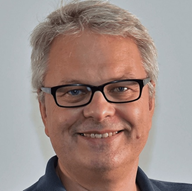 Dr. Ernö Kovacs received his PhD from the University of Stuttgart. He worked in ICT research various positions (at IBM from 1986-90, at Sony from 1997-2004) on topics like multimedia e-mail, multimedia documents, distributed hypermedia systems, mobile networks, and mobile services. In 2005 he joined NEC’s European Laboratories. He is now working as Senior Manager for “IoT Platform Research”. His group works on context brokering, Cloud-Edge Computing, real-time situation awareness , knowledge extraction and smart cities. They were major contributor to the standard for context brokering in OMA (NGSI) and now in the ETSI SIC Context Information Management (NGSI-LD). He is leading the Smart Industry Mission Support Committee in the FIWARE Foundation. His team has worked on Digital Twin for autonomous driving cars, on Digital Twin for Manufacturing and recently on Digital Twin for Energy Efficiency and Energy Flexibility.
Dr. Ernö Kovacs received his PhD from the University of Stuttgart. He worked in ICT research various positions (at IBM from 1986-90, at Sony from 1997-2004) on topics like multimedia e-mail, multimedia documents, distributed hypermedia systems, mobile networks, and mobile services. In 2005 he joined NEC’s European Laboratories. He is now working as Senior Manager for “IoT Platform Research”. His group works on context brokering, Cloud-Edge Computing, real-time situation awareness , knowledge extraction and smart cities. They were major contributor to the standard for context brokering in OMA (NGSI) and now in the ETSI SIC Context Information Management (NGSI-LD). He is leading the Smart Industry Mission Support Committee in the FIWARE Foundation. His team has worked on Digital Twin for autonomous driving cars, on Digital Twin for Manufacturing and recently on Digital Twin for Energy Efficiency and Energy Flexibility.
Victor Larios, Institute for the Development and Innovation in Smart Cities, Guadalajara, Mexico
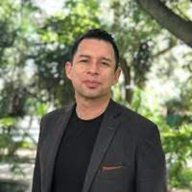 Victor M. Larios has received his PhD and a DEA (French version of a MS program) in Computer Science at the Technological University of Compiègne, France and a BA in Electronics Engineering at the ITESO University in Guadalajara, Mexico. He holds a Full Professor-Researcher position at the Department of Information Systems in the CUCEA Campus at the public University of Guadalajara.Dr. Larios is the founder of the PhD in Information Technologies at UDG. As researcher he has been collaborating in local and international projects with Intel, IBM, and HP as well as exchanges with the University of Toulouse in France. His research interests are related to distributed systems, virtual reality, and smart cities. Since February 2013, he has been the Director of Science and Technology at the Guadalajara Ciudad Creativa Digital (CCD). His main responsibilities are focused on the Smart City development for the first phase as well as the talent generation. Dr. Larios has 19 years of affiliation at the IEEE, and recently has been upgraded as a Senior Member. He also is the current chair of the Computer Society at the Guadalajara Section. He also is the Guadalajara local leader at the IEEE-Urbanization Challenge.
Victor M. Larios has received his PhD and a DEA (French version of a MS program) in Computer Science at the Technological University of Compiègne, France and a BA in Electronics Engineering at the ITESO University in Guadalajara, Mexico. He holds a Full Professor-Researcher position at the Department of Information Systems in the CUCEA Campus at the public University of Guadalajara.Dr. Larios is the founder of the PhD in Information Technologies at UDG. As researcher he has been collaborating in local and international projects with Intel, IBM, and HP as well as exchanges with the University of Toulouse in France. His research interests are related to distributed systems, virtual reality, and smart cities. Since February 2013, he has been the Director of Science and Technology at the Guadalajara Ciudad Creativa Digital (CCD). His main responsibilities are focused on the Smart City development for the first phase as well as the talent generation. Dr. Larios has 19 years of affiliation at the IEEE, and recently has been upgraded as a Senior Member. He also is the current chair of the Computer Society at the Guadalajara Section. He also is the Guadalajara local leader at the IEEE-Urbanization Challenge.
Olivia Menaguale, Art Historian, Rome, Italy
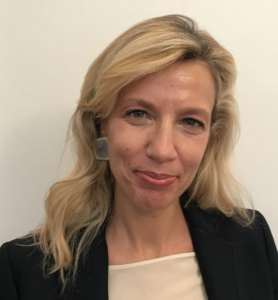 Olivia Menaguale is an art historian and archaeologist, whose lifelong passion in her studies and career, over the last 30 years, has been to improve the communications and access to Cultural Heritage and Tourism in Europe and the US, working alongside experts in technology from digital photo-archives to the financial art world, from audio-video guides to 3D reconstructions. She has worked alongside national and local governments, superintendencies, art experts, archaeologists, collectors, and auction houses, and in projects for museums to historical and archaeological sites, from theme parks to government committees, from art exhibitions to world expos.
Olivia Menaguale is an art historian and archaeologist, whose lifelong passion in her studies and career, over the last 30 years, has been to improve the communications and access to Cultural Heritage and Tourism in Europe and the US, working alongside experts in technology from digital photo-archives to the financial art world, from audio-video guides to 3D reconstructions. She has worked alongside national and local governments, superintendencies, art experts, archaeologists, collectors, and auction houses, and in projects for museums to historical and archaeological sites, from theme parks to government committees, from art exhibitions to world expos.
Menaguale received a Doctorate in Modern Literature, with a specialisation in Art History at the Università Cattolica del Sacro Cuore in Milan (Italy), with 1st class honours 110/110 Cum Laude.
Merging her knowledge and skills in art history and archaeology with technology, she has developed projects to research and provide access to art, both onsite and virtually offsite. She started in the early 1990s, with the development and management of a financial photographic database on works of art that pass at auction called “I-on-Art”. It was commercialised and used by art collectors, auction houses and museums, internationally. This led to two pioneering digitisation projects, in London and New York, for the world’s two largest art history photo-archives of a total of more than 3.5 million annotated photos held at the Witt Library at the Courtauld Institute (London, UK) and the at Frick Museum & Art Reference Library (New York, NY, USA).
Since then, Olivia Menaguale has led and been involved in other digital projects, including the 3D reconstruction of ancient Rome – in collaboration with the University of Virginia (Charlottesville, VA, USA), UCLA (Los Angeles, CA, USA), and the Italian Ministry of Culture. This remains the largest 3D model of any historical site. In 2008, Google Inc. (Mountainview, CA, USA) partnered the project, and together launched the first historical city, “Ancient Rome” on Google Earth which could be flown over in 24 languages and was explored by 78 million people worldwide in the first week of going public.
Some other projects she has led, include the creation of a mini theme park on the Colosseum called “Rewind Rome” for tourists visiting the City of Rome; and a 3D CAVE inside the historical site of Pompeii offering the 2.5 visiting visitors with a 360° fully immersive reconstruction of a bustling street in 64 A.D. before the eruption.
Olivia also led the team to create and manage the world’s first audio-video guide for a historical site, at the Colosseum in 2006. This service, providing over 100 minutes of videos, photographic explanatory materials, and narration, is still offered to the 4 million visitors to the site today, available in 9 languages.
Due to her unique knowledge and experience in bringing together the very differing worlds of technology with art history and archaeology, she has represented her home country Italy, in state missions, such as to the Middle East with the former Italian President, On. Napolitano, and in curating an Old Master Exhibition on Italian Art at the 2015 World Expo in Milan (Italy). She has also taught a series of lectures on art and technology at the Università di Roma La Sapienza in Rome (Italy), called “I mestieri dell’arte” (The jobs of the art world” which was then published under Electa (Mondadori).
Sebastien Massart, Director of Strategy, Dassault Systems, Paris, France
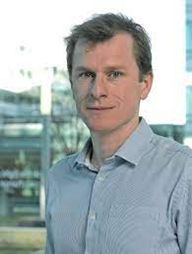
Vartan Piroumian, Consultant, Los Angeles, CA USA
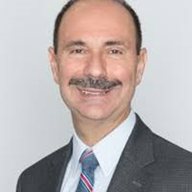 Vartan Piroumian is a technology adviser and consultant with formal training in computer science and electrical engineering. He works globally, helping his clients deliver enterprise-scale strategic and tactical business value through the proper use of technology.
Vartan Piroumian is a technology adviser and consultant with formal training in computer science and electrical engineering. He works globally, helping his clients deliver enterprise-scale strategic and tactical business value through the proper use of technology.
As an industry-certified enterprise architect, the author orchestrates the synergy between the gamut of an enterprise’s concerns, guiding its principals towards the achievement of business goals and objectives by mentoring clients in architecture best practices. Mr. Piroumian engages with his clients at all echelons, from the board level to the engineering level, and across the range of roles and functions.
His engineering experience includes defense, aerospace and commercial, and in various industry domains and technology sectors, building both systems and application software products from inception to release. Some of his career accomplishments include authoring real-time software that flew on the US Space Shuttle, building systems and software architecture for command, control, communications, and information systems (C3I), developing SunOS and Solaris systems software and software developer tools, working on security firewall software, and contributing to the Java Developers Kit (JDK).
In addition to his professional consulting work, Mr. Piroumian’s experience includes instruction in various technical courses in programming, computer science, software engineering and software and enterprise architecture for the University of California, Santa Cruz professional extension program in Silicon Valley.
The author of two books and numerous journal articles, he is currently drafting a new book on digital transformation and technology strategy.
Larry Schmitt, The Inovo Group, Ann Arbor, MI USA
 Larry is a Founder and Managing Partner of The Inovo Group, a provider of strategic innovation consulting services. Since co-founding Inovo in 2001, Larry has led their growth to become a successful, recognized leader in the field of innovation.
Larry is a Founder and Managing Partner of The Inovo Group, a provider of strategic innovation consulting services. Since co-founding Inovo in 2001, Larry has led their growth to become a successful, recognized leader in the field of innovation.
Larry draws upon years of experience in both large corporations and startups that wrestled with how to innovate. He has worked closely with Inovo’s clients including Cargill, Dow Chemical, Honeywell, Corning, United Health Group, ExxonMobil, and DuPont, among many others, all of whom draw upon the frameworks, methods, and tools he and others at Inovo have developed over the years to improve strategic innovation portfolios and capabilities.
Larry regularly writes and speaks on innovation and related topics. He holds a PhD in computer science from the University of Wisconsin and a BS from the University of Michigan.
Jeffrey Voas, NIST, Gaithersburg, MD USA
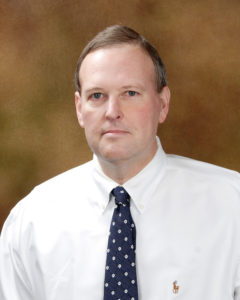 Jeffrey Voas is an author and innovator. He is currently a computer scientist at the US National Institute of Standards and Technology (NIST) in Gaithersburg, MD. Before joining NIST in 2009, Voas was an entrepreneur and co-founded Cigital that is now part of Synopsys (Nasdaq: SNPS). He has served as the IEEE Reliability Society President (2003-2005, 2009-2010, 2017-2018), and served as an IEEE Director (2011-2012). Voas co-authored two John Wiley books (Software Assessment: Reliability, Safety, and Testability [1995] and Software Fault Injection: Inoculating Software Against Errors [1998], is on the editorial board of IEEE Computer Magazine, and was on the Editorial Advisory Board of IEEE Spectrum Magazine (2011-2015). Voas will be the Editor-in-Chief of IEEE Computer Magazine (2020-2022). Voas received his undergraduate degree in computer engineering from Tulane University (1985) and received his M.S. and Ph.D. in computer science from the College of William and Mary (1986, 1990 respectively). Voas is a Fellow of the IEEE, member of IEEE Eta-Kappa Nu (IEEE Honor Society), Fellow of the Institution of Engineering and Technology (IET), Fellow of the American Association for the Advancement of Science (AAAS), and Life member and Fellow of the Washington Academy of Sciences. Voas is a member of ACM and an Emeritus Life member of the College of William and Mary Graduate Studies Board. Voas’s current research interest is verified time and timestamping using multiple atomic clocks. Voas received the Gold Medal from the US Department of Commerce in 2014.
Jeffrey Voas is an author and innovator. He is currently a computer scientist at the US National Institute of Standards and Technology (NIST) in Gaithersburg, MD. Before joining NIST in 2009, Voas was an entrepreneur and co-founded Cigital that is now part of Synopsys (Nasdaq: SNPS). He has served as the IEEE Reliability Society President (2003-2005, 2009-2010, 2017-2018), and served as an IEEE Director (2011-2012). Voas co-authored two John Wiley books (Software Assessment: Reliability, Safety, and Testability [1995] and Software Fault Injection: Inoculating Software Against Errors [1998], is on the editorial board of IEEE Computer Magazine, and was on the Editorial Advisory Board of IEEE Spectrum Magazine (2011-2015). Voas will be the Editor-in-Chief of IEEE Computer Magazine (2020-2022). Voas received his undergraduate degree in computer engineering from Tulane University (1985) and received his M.S. and Ph.D. in computer science from the College of William and Mary (1986, 1990 respectively). Voas is a Fellow of the IEEE, member of IEEE Eta-Kappa Nu (IEEE Honor Society), Fellow of the Institution of Engineering and Technology (IET), Fellow of the American Association for the Advancement of Science (AAAS), and Life member and Fellow of the Washington Academy of Sciences. Voas is a member of ACM and an Emeritus Life member of the College of William and Mary Graduate Studies Board. Voas’s current research interest is verified time and timestamping using multiple atomic clocks. Voas received the Gold Medal from the US Department of Commerce in 2014.


